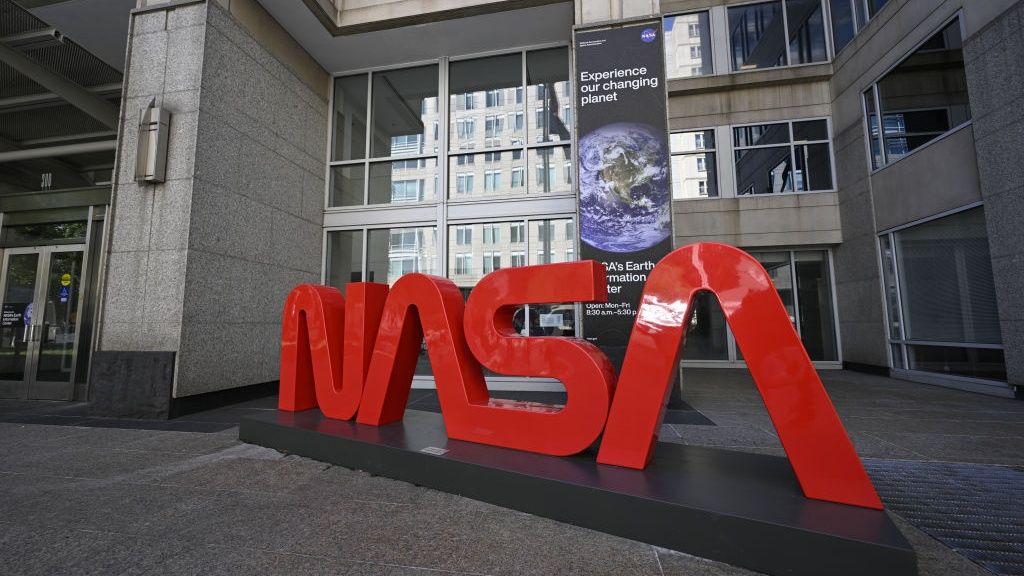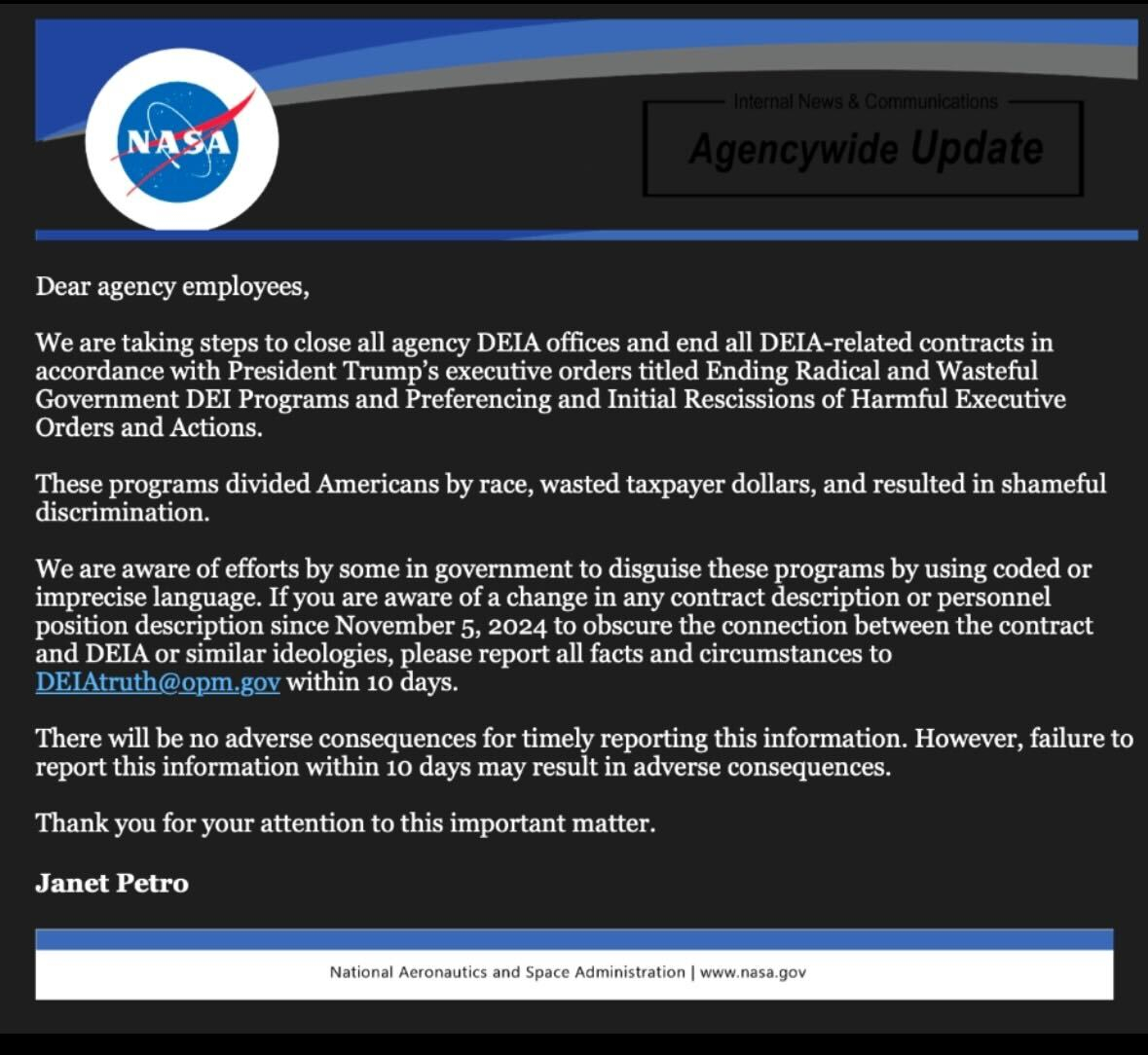
In recent weeks, NASA has faced intense scrutiny regarding its adherence to executive directives issued by former U.S. President Donald Trump. These orders have far-reaching implications for all federal agencies, including a mandate that has forced the space organization to discontinue its diversity, equity, inclusion, and accessibility (DEIA) initiatives and to remove related content from its websites. For instance, reports indicate that the agency has been ordered to halt DEIA programs.
In another developing story, NASA Watch reports that employees have been instructed to eliminate any references to LGBTQI+ Pride in their workspaces. In light of previous coverage of this issue, a NASA representative provided a statement to Space.com on February 11:
“There are no new restrictions on personal items within employees’ workspaces. Employees are reminded to ensure that their items comply with legal, safety, and NASA guidelines. While some managers have advised discretion regarding personal displays, there are no repercussions or threats related to administrative leave for displaying personal belongings.”
This statement was reiterated to NASA Watch on the same day, four days after their initial report. However, sources from NASA Headquarters who provided revelations about the removal of LGBTQI+ representation have not responded to NASA’s counter-claims.
Prior to NASA’s statement, leading members of the U.S. House Space and Aeronautics Committee, Zoe Lofgren (D-CA) and Valerie Foushee (D-NC), voiced their concerns in a joint statement about NASA’s possible restrictions on Pride-related items in the workplace.
“This represents a serious overreach and a blatant attack on the free expression of NASA employees,” they stated, adding, “This government-endorsed censorship is an infringement on the rights of federal staff and is unacceptable.”
This incident is just one of many examples illustrating the backlash against NASA due to President Trump’s executive orders. For example, an internal memo circulated in late January—based on directives from the U.S. Office of Personnel Management—was issued by acting NASA chief Janet Petro and met with significant disapproval from the scientific community.
This memo not only outlined the directive to erase DEIA-related content from agency platforms, claiming such initiatives have “divided Americans by race, squandered taxpayer funds, and resulted in unjust discrimination,” but it also warned employees. Failing to report efforts to undermine policies regarding the removal of DEIA initiatives could lead to “negative repercussions.”

Additionally, employees were reportedly instructed to “drop everything” and erase mentions of sensitive phrases such as “Indigenous People,” “Environmental Justice,” and any terms specifically related to women, like “women in leadership,” according to an internal directive obtained by the journalist-supported news outlet 404 Media.
Importantly, NASA is not the only government-funded scientific institution adapting to the White House’s directives on removing DEIA terminology. The Rubin Observatory, for example, has revised portions of its website, including Vera Rubin’s biography, she being an esteemed astronomer pivotal to the discovery of dark matter and a trailblazer for women in the field.









